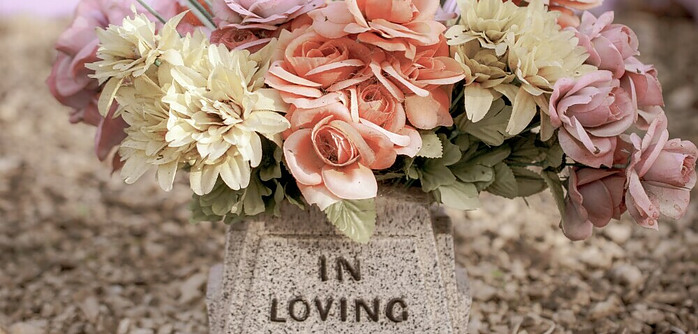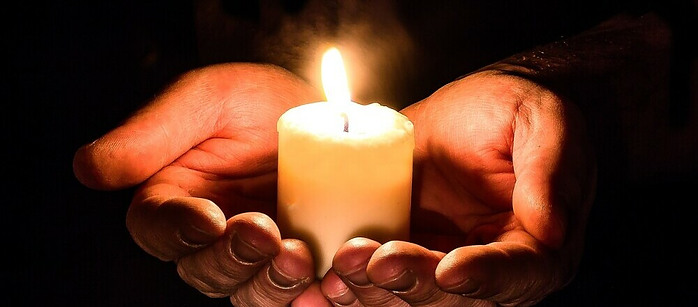 What is coping with loss through expert advice as well as personal experience. Looking at the Journey to Healing and how long it takes to get over a loss. The Path of Healing and once again finding meaning in your life is a unique one.
What is coping with loss through expert advice as well as personal experience. Looking at the Journey to Healing and how long it takes to get over a loss. The Path of Healing and once again finding meaning in your life is a unique one.
I have become seasoned, an expert if you will, at handling loss. Experience is the best teacher. I have been in loss more than eight times of very close friends and direct family members and I guess you can call me an expert on dealing with loss. I have lost two brothers, one of which was sudden in a car accident, two sisters, two parents again one was sudden, my mom collapsed and died, a nephew and a close friend. Been divorced and remarried and once failed in business! This article covers dealing with loss as a whole.


Grief is a deeply personal and emotionally painful experience that has quite an impact on the lives of individuals. The impact it has on our daily lives is life-altering. After the loss, you will never be the same again. The reason why we struggle so much with loss is because we want things to be the same. Our mind can’t process the change. It insists to want things the way they were and unfortunately this is impossible. This ushers in despair and emotional pain that is unbearable. Loss is not a choice, it’s a situation that is forced on us and at times comes unannounced, hence the mind struggles to accept it. Over time the mind gradually realizes it’s true and slowly, very slowly accepts the loss. It is during this time that we want the struggle to end. There are steps one can take to help the process.
The path is highly unpredictable. The experience of grief does not follow rigid ‘stages’ but is rather an unpredictable and fluid process that is unique to each individual’s journey. Recognizing and affirming every emotion that has to do with the significant experience of grief is of utmost importance in the healing process.
The Factors That Influence The Grieving Process

The impact of personal relationships on the intensity of grief one may experience: In times of reflection, we often find ourselves contemplating the deep impact and meaningful connections we have shared with the individuals who have departed. It is during these moments that we may also experience the severe depths of sorrow and loss.
Our grieving is influenced by cultural, societal, and individual beliefs. The beliefs we hold have a profound impact on how we express our sorrow and seek comfort.
Pre-loss factors, such as the significant impact of anticipatory grief like in terminal illness, and the complex dynamics of attachment styles, play a crucial role in shaping our personal journey.
There exists a delicate balance between healthy and harmful coping mechanisms, as they serve as the guiding forces that help us navigate through life’s loss challenges. The influence that a supportive network can have on the speed and character of your recovery journey is significant.
Inner strength and restoration.
Developing inner strength and unlocking effective strategies are essential for fostering solace. The potential of resilience by exploring a wide range of nurturing techniques and adopting adaptive coping strategies.
Seek the Potential of Professional Assistance. This is part of uncovering the secret to managing complex emotions and the journey of healing.
The Power of Nurturing Connections: Find solace in the warm embrace of a vibrant community, where shared experiences form the foundation of comfort and a deep sense of belonging.
Immerse yourself in the transformative power of rituals and memorials as they guide the process of healing. Explore a meaningful way to honor the treasured memories of your loved ones and navigate the complex journey of grief with strength and resilience.
Embracing Life After Loss
Embark on a transformative journey through the challenges of life after loss, as you adapt and know what you are looking at is a new normal of living with loss and redefining normal as the art of adapting to life’s inevitable changes. By exploring new paths, we find happiness and meaning in life, even in the face of great loss.
Maintain a Connection with Loved Ones Who Have Passed Away. How to do that is explained further down in this article.
Explore the profound concept of post-traumatic growth to unlock your innate potential.
The journey is as unique as each individual who embarks upon it. The nature of healing from loss is that time knows no boundaries. It is about embarking on the journey with compassion for yourself, understanding, and unyielding resilience. These invaluable qualities are essential for unlocking the doors of healing and tapping into the limitless potential for personal growth that resides within us.
Coping with grief in a healthy manner is crucial for emotional well-being and healing. Here are some healthy mechanisms for dealing with grief:
Expressing Emotions: Allowing yourself to feel and express your emotions, whether it’s sadness, anger, or confusion, is essential. Bottling up emotions can lead to increased stress and prolonged grief.
Seeking Support: Turning to friends, family, or support groups can provide comfort and understanding. Sharing your feelings with others who have experienced similar losses can be particularly helpful.
Self-Care: Prioritizing self-care is vital during the grieving process. This includes getting enough sleep, eating well, and engaging in physical activity. Self-care also means giving yourself permission to take a break from grieving when needed.
Professional Help: Sometimes, the intensity of grief can be overwhelming. Seeking help from a therapist or counselor, especially those specialized in grief counseling, can provide guidance and strategies to cope.
Creative Expression: Many find solace in expressing their grief through creative outlets like writing, painting, music, or gardening. These activities can offer a way to process emotions in a tangible way.

Rituals and Memorials: Participating in rituals, creating memorials, or engaging in activities that honor the memory of the loved one can provide comfort and a sense of connection to the person who has passed.
Mindfulness and Relaxation: Practices such as meditation, yoga, or deep-breathing exercises can help manage the stress and anxiety that often accompany grief.
Setting Realistic Expectations: Understanding that grief is a process and giving yourself permission to grieve in your own way and time is important. There’s no “right” way to grieve or a set timeline for healing.
Engaging in Activities: Keeping yourself engaged in hobbies, interests, or social activities can provide a sense of normalcy and distraction from grief.
Journaling: Writing about your thoughts and feelings can be a therapeutic way to process grief. It provides a private space to express and reflect on your emotions.
Remember, everyone’s journey through grief is unique. What works for one person may not work for another. It’s important to find what resonates with you and allows you to heal in a way that’s respectful to your emotions and well-being.
Unhealthy Ways To Deal With Grief

Coping with grief in unhealthy or harmful ways can impede the healing process and may lead to longer-term emotional or physical health issues. It’s important to recognize and avoid these harmful coping mechanisms:
Substance Abuse: Turning to alcohol, drugs, or prescription medication to numb the pain or escape from emotions is a common but harmful coping mechanism. It can lead to addiction and worsen mental health in the long run.
Isolation: While some solitude can be helpful, completely isolating oneself from others can exacerbate feelings of loneliness, depression, and anxiety.
Denial: Refusing to acknowledge the loss or one’s feelings about it can delay the grieving process. Denial is a temporary defense mechanism, but long-term avoidance can lead to unresolved grief.
Overworking or Hyperactivity: Immersing oneself excessively in work or activities to avoid dealing with grief can lead to burnout and emotional exhaustion.
Self-Blame or Guilt: Obsessively blaming oneself for the loss or what could have been done differently can be damaging and lead to feelings of worthlessness and depression.

Anger and Bitterness: While anger is a natural stage of grief, dwelling on it or directing it inappropriately at others can strain relationships and create additional emotional turmoil.
Neglecting Self-Care: Ignoring basic needs like proper nutrition, sleep, and physical activity can have negative effects on both physical and mental health.
Engaging in Risky Behaviors: Some people might engage in risky or self-destructive behaviors as a form of coping, which can have serious consequences.
Suppressing Emotions: Continually suppressing or hiding one’s emotions, perhaps to appear strong or for fear of burdening others, can lead to increased stress and potential mental health issues.

Over-Reliance on Sedatives or Sleeping Pills: Using medication to induce sleep or calm nerves without medical guidance can lead to dependency and other health complications.
It’s important to seek healthy ways to cope with grief and consider professional help if struggling with harmful coping mechanisms. Therapists or counselors can provide support and strategies to navigate the grieving process in a healthier way.
How does one maintain a connection with the departed?
How to Maintain a Connection with Loved Ones Who Have Passed. Explore the comforting aspect of grief and embrace the journey of integrating loss into your ongoing life.
Maintaining a connection with the departed is a deeply personal process and can be a significant part of the grieving and healing journey. Here are some ways people often maintain a connection with those who have passed away:
Memorializing: Creating a physical space or memorial, like a garden or a dedicated area in the home, can serve as a special place to remember and feel close to the departed.
Celebrating Milestones and Anniversaries: Marking important dates, such as birthdays or anniversaries, in honor of the departed can help keep their memory alive. This can involve rituals like visiting their grave, sharing stories, or doing something they enjoyed.

Keeping Heirlooms or Mementos: Holding onto personal items that belonged to the departed, such as jewelry, books, or clothing, can provide a tangible connection to them.
Talking About Them: Sharing stories and memories with others helps keep the departed’s memory alive and can be a way to process grief and celebrate their life.
Writing Letters or Journaling: Some people find comfort in writing letters to their loved one, expressing thoughts and feelings they wish they could share.
Engaging in Activities They Loved: Participating in hobbies, activities, or causes that were important to the departed can help maintain a sense of connection and honor their memory.
Incorporating Their Values or Lessons: Continuing to live by the values, lessons, or philosophies taught by the departed can be a way of honoring their impact on your life.
Spiritual or Religious Practices: For those with spiritual or religious beliefs, engaging in prayer, meditation, or rituals can provide a sense of connection.

Dreams and Reflections: Some people find comfort in dreams where the departed appear, or through quiet reflection where they feel a sense of presence or communication.
Creating Art or Music: Expressing emotions through art or music can be a therapeutic way to process grief and feel connected to the departed.
It’s important to note that maintaining a connection with the departed is a very individual choice and what feels right for one person may not be the same for another. It’s also okay for the nature of this connection to change over time as one moves through different stages of grief.
This information an be used in any situation of loss. All one has to do is adapt it to the situation of loss that one is going through.
Hopefully this helps to ease the pain for you.
Take care.
Robyn

Thanks for providing this information – especially the rundown of healthy versus unhealthy ways to cope after a loss. You’re correct that grief is deeply personal, but no matter the particulars, it is probably the most painful experience most of us will ever go through. And it happens to us all – unfortunately no one is spared. So we could all use valuable information like you have provided here.
Thank you Ben. I totally agree and feel supported in the journey of grief. Like you said, no one is spared.
Cheers
Robyn
This is a beautifully written article, and I am so sorry that you had to go through so many personal losses to come to this point in your life, but you are helping others with your helpful advice and encouraging words.
I think it is natural to want to isolate yourself from others during your sorrow, but being around others definitely helps to ease the pain a little, and being able to talk to somebody about it also helps.
Hi Michel
Sometimes life gives us lemons and we have to learn to make lemonade. If my experience helps other people then my journey was not in vain. Thank you for passing by.
Robyn